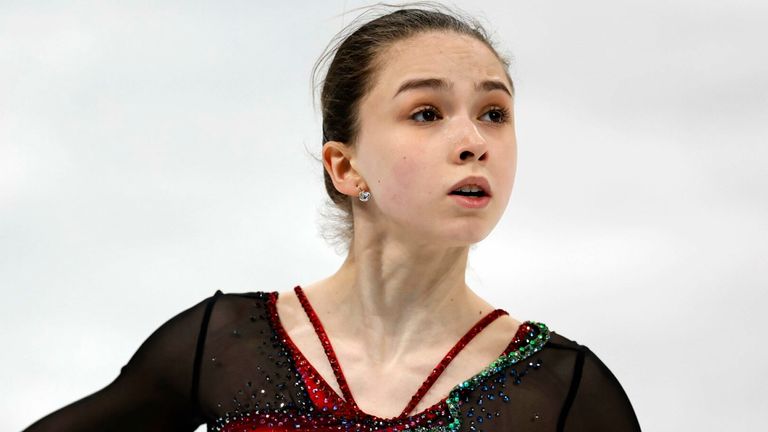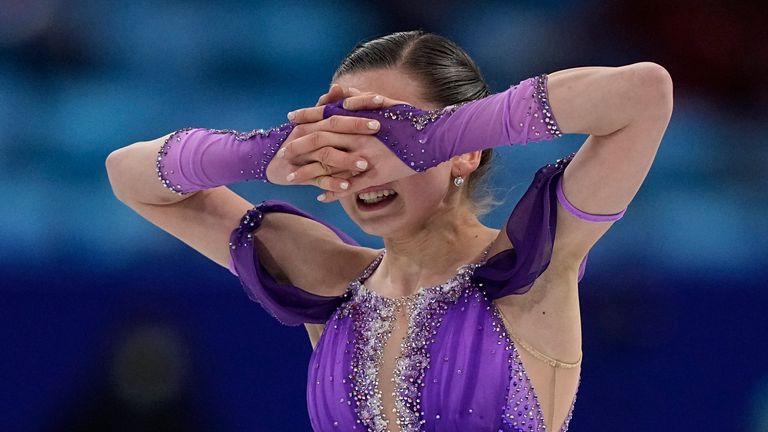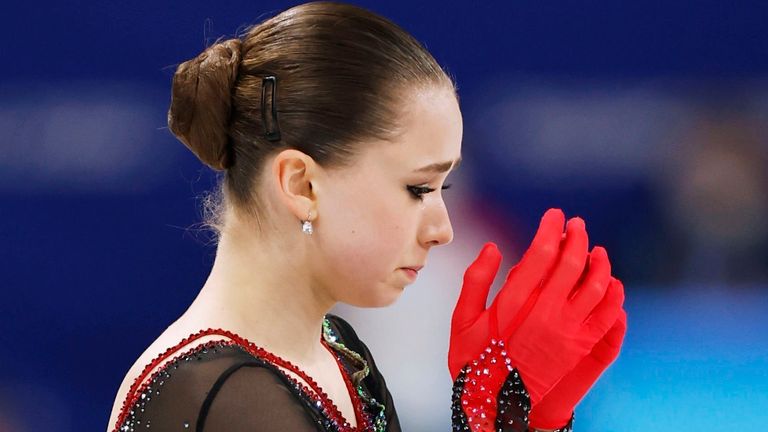International Skating Union to raise minimum age of competition from 15 to 17 after Kamila Valieva controversy
Skaters must be 16 to compete from 2023-24 season, which will then rise to 17 for the 2024-25 season ahead of the 2026 Winter Olympics in Italy; Russia's Kamila Valieva was 15 when she competed in Beijing earlier this year, with news of her failed drugs Test placing her under stress
Tuesday 7 June 2022 11:33, UK
The International Skating Union has voted to gradually raise the minimum age of competition from 15 to 17 following the controversy surrounding Kamila Valieva at the 2022 Winter Olympics in Beijing.
The minimum age for skaters will be 16 years old for the 2023-24 season and then increase to 17 from the 2024-25 season, in time for the 2026 Winter Olympics in Italy.
Russian skater Valieva tested positive for a banned substance while at the Beijing Games in February, at which point she was 15 years of age.
Valieva was allowed to continue competing after a series of appeals but finished fourth in the women's singles event after an error-strewn display having headed into the competition as favourite for the gold medal.
Valieva's case raised questions over whether the minimum age for competitors should be hiked up in order to protect minors, with the ISU's medical commission citing concerns over "burnout, disordered eating, and long-term consequences of injury".
The proposal was passed by 100 votes to 16, with two abstentions, at the ISU congress in Phuket with ISU President Jan Dijkema saying: "This is a very important decision. I would say a very historic decision."
Valieva had failed a doping test at the Russian national championships last December but the result was only revealed on February 8, a day after she had helped the Russian Olympic Committee win the team event in Beijing.
Russian figure skating coach Tatiana Tarasova has suggested that ISU's rule change was aimed squarely at her country.
"They see that there is a large number of girls and boys in our country and they want to block them from competing," she told Russia's Match TV.
The Israeli delegate to the congress also argued that the rule change would have a disproportionate impact on smaller nations with fewer skaters.
However, ISU Athletes Commission member Eric Radford said the vast majority of skaters were in favour of the change.
"The life of an athlete is short and intense, their experience in this short phase sets the platform for the rest of their lives - physically, spiritually. emotionally," said the Canadian,
"While I hear the concerns of certain nations about the immediate difficulty that they might face with this proposal being passed, is a medal really worth the life of a young athlete?"





